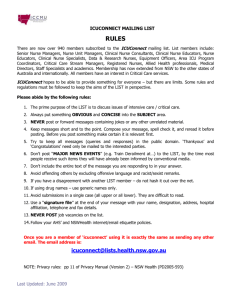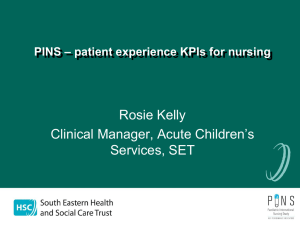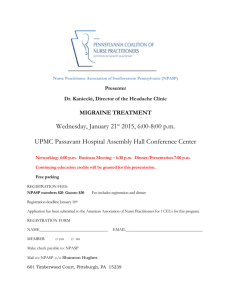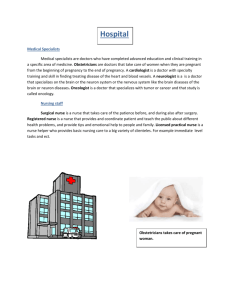Submission DR255 - Monica Davine
advertisement
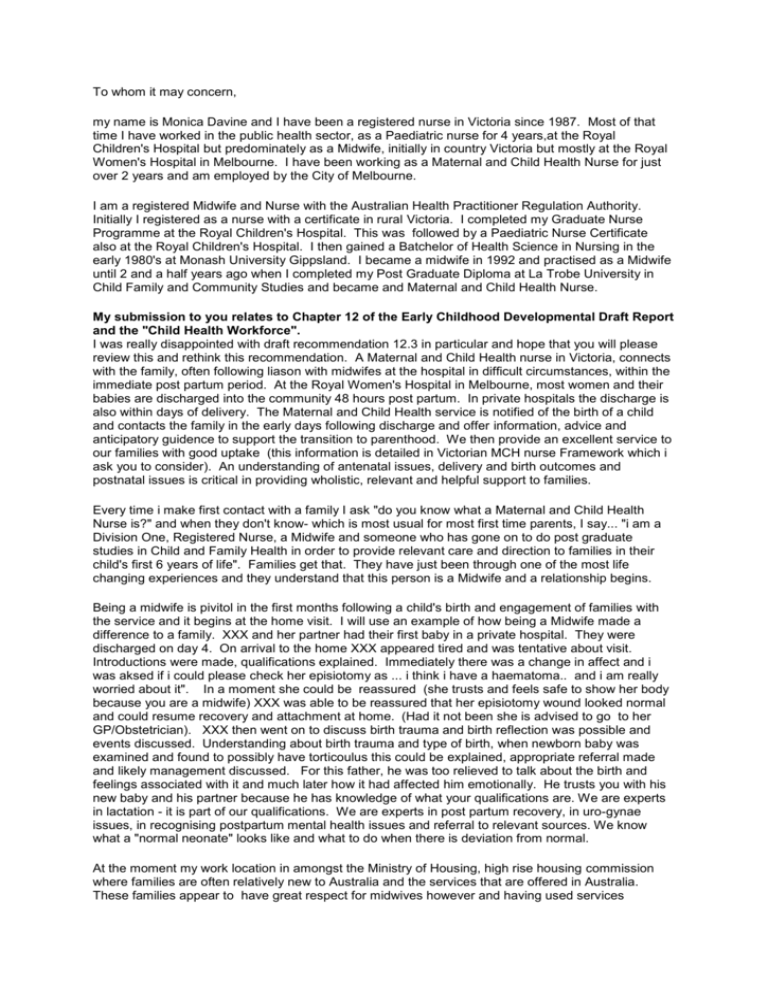
To whom it may concern, my name is Monica Davine and I have been a registered nurse in Victoria since 1987. Most of that time I have worked in the public health sector, as a Paediatric nurse for 4 years,at the Royal Children's Hospital but predominately as a Midwife, initially in country Victoria but mostly at the Royal Women's Hospital in Melbourne. I have been working as a Maternal and Child Health Nurse for just over 2 years and am employed by the City of Melbourne. I am a registered Midwife and Nurse with the Australian Health Practitioner Regulation Authority. Initially I registered as a nurse with a certificate in rural Victoria. I completed my Graduate Nurse Programme at the Royal Children's Hospital. This was followed by a Paediatric Nurse Certificate also at the Royal Children's Hospital. I then gained a Batchelor of Health Science in Nursing in the early 1980's at Monash University Gippsland. I became a midwife in 1992 and practised as a Midwife until 2 and a half years ago when I completed my Post Graduate Diploma at La Trobe University in Child Family and Community Studies and became and Maternal and Child Health Nurse. My submission to you relates to Chapter 12 of the Early Childhood Developmental Draft Report and the "Child Health Workforce". I was really disappointed with draft recommendation 12.3 in particular and hope that you will please review this and rethink this recommendation. A Maternal and Child Health nurse in Victoria, connects with the family, often following liason with midwifes at the hospital in difficult circumstances, within the immediate post partum period. At the Royal Women's Hospital in Melbourne, most women and their babies are discharged into the community 48 hours post partum. In private hospitals the discharge is also within days of delivery. The Maternal and Child Health service is notified of the birth of a child and contacts the family in the early days following discharge and offer information, advice and anticipatory guidence to support the transition to parenthood. We then provide an excellent service to our families with good uptake (this information is detailed in Victorian MCH nurse Framework which i ask you to consider). An understanding of antenatal issues, delivery and birth outcomes and postnatal issues is critical in providing wholistic, relevant and helpful support to families. Every time i make first contact with a family I ask "do you know what a Maternal and Child Health Nurse is?" and when they don't know- which is most usual for most first time parents, I say... "i am a Division One, Registered Nurse, a Midwife and someone who has gone on to do post graduate studies in Child and Family Health in order to provide relevant care and direction to families in their child's first 6 years of life". Families get that. They have just been through one of the most life changing experiences and they understand that this person is a Midwife and a relationship begins. Being a midwife is pivitol in the first months following a child's birth and engagement of families with the service and it begins at the home visit. I will use an example of how being a Midwife made a difference to a family. XXX and her partner had their first baby in a private hospital. They were discharged on day 4. On arrival to the home XXX appeared tired and was tentative about visit. Introductions were made, qualifications explained. Immediately there was a change in affect and i was aksed if i could please check her episiotomy as ... i think i have a haematoma.. and i am really worried about it". In a moment she could be reassured (she trusts and feels safe to show her body because you are a midwife) XXX was able to be reassured that her episiotomy wound looked normal and could resume recovery and attachment at home. (Had it not been she is advised to go to her GP/Obstetrician). XXX then went on to discuss birth trauma and birth reflection was possible and events discussed. Understanding about birth trauma and type of birth, when newborn baby was examined and found to possibly have torticoulus this could be explained, appropriate referral made and likely management discussed. For this father, he was too relieved to talk about the birth and feelings associated with it and much later how it had affected him emotionally. He trusts you with his new baby and his partner because he has knowledge of what your qualifications are. We are experts in lactation - it is part of our qualifications. We are experts in post partum recovery, in uro-gynae issues, in recognising postpartum mental health issues and referral to relevant sources. We know what a "normal neonate" looks like and what to do when there is deviation from normal. At the moment my work location in amongst the Ministry of Housing, high rise housing commission where families are often relatively new to Australia and the services that are offered in Australia. These families appear to have great respect for midwives however and having used services antenatally, for delivery and postpartum that are often midwife led models, they too have and understanding of our potential to provide relevant referrals and information. These vulnerable clients engage. They have an understanding of the importance and qualifications of what a Maternal and Child Health nurse is. Because trust is built in reliable and evidence based knowledge, anticpatory guidence and appropriate referral when deviations from normal and recognised, families continue to engage and services are able to be provided to these families. I have loved every part of my nursing career. I am pationate about what a difference an appropriately qualified nurse can make to an individual, family and to a community. Nursing is about the whole picture. A Maternal and Child Health Nurse needs to be a registered nurse - people are looking to you for wholisic care and a broad understanding of health is essential. When a young parent is discussing his / her parents illness, the medical condition of his / her child, or general health it is crucial to have the understanding of a Division One registered nurse. Midwifery is also an essential componant to providing effective, relevant and appropriate care to women and their families. Birth reflection and its management has been recognised as a major contributor to paternal and maternal wellbeing postpartum. The post graduate studies are also critical to providing care that people seek and engage with. Please also reconsider the value of scholorships for my colleagues. I did not have a scholorship - my husband was working full time, my three children were very young at the time of my study and my workplace at the Royal Women's Hospital was supportive of education and enabled me to work flexibly in birth suite during my studies. I also completed my studies part time and had a government supported place. Many colleages are in less fortuatous situations and many would not be able to undertake this qualification and provide quality care in the critical early years without the financial support gained. Thankyou for your time and please support the care we provide to our families that assists families in gaining best possible outcomes for our children. Best wishes Monica Monica Davine. Maternal and Child Health Nurse | Community Services City of Melbourne |North Melbourne Community Centre.




